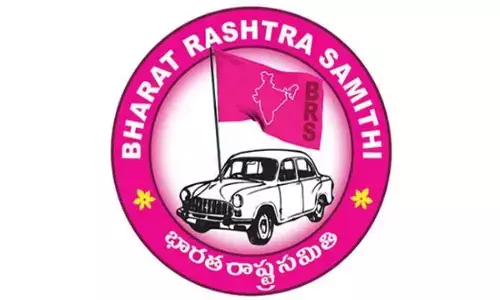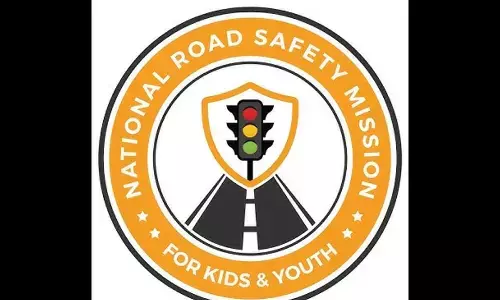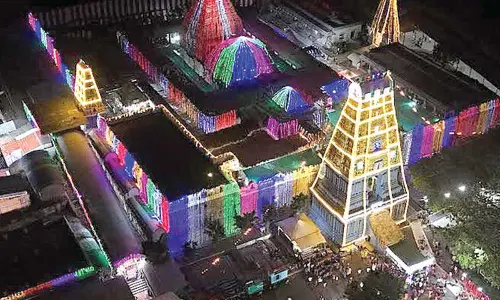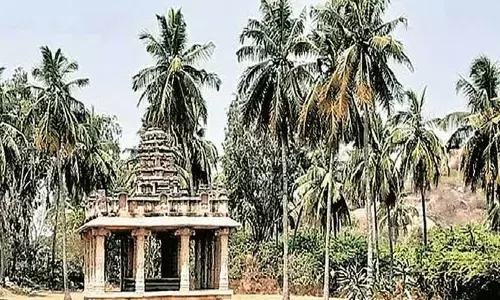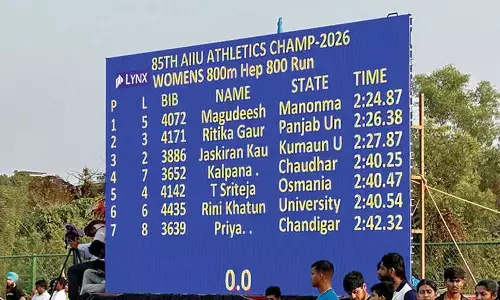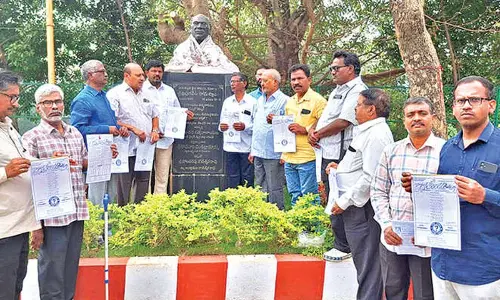PM tells CMs... Pursue development and anti-Maoist operations

A day-long meet on internal security here on Wednesday saw Chief Ministers of non-UPA parties expressing strong reservations against the contentious National Counter Terrorism Centre (NCTC), even as the government defended the move saying the nation will have to pay the price if the federal anti-terror agency is not set up. Most Chief Ministers attending the meet on internal security under the chairmanship of Prime Minister Manmohan Singh, took the opportunity to once again voice their opposition to the NCTC. The meeting was held days after the May 25 Maoist attack in Chhattisgarh. The conference was meant to focus on Maoist violence and the prime minister too spoke at length on it.
Referring to the Chhattisgarh attack, Manmohan Singh said there was no place for Maoist violence in Indian democracy and highlighted the need to strengthen measures to curb it. "Such violence has no place in our democracy," said the Prime Minister. Singh said on Wednesday the government's two-pronged strategy of sustained operations and addressing development issues must be strengthened. To build a broader national consensus on the strategy to tackle the challenge, the government has convened a meeting of all political parties on June 10, he said.
He said the government's two-pronged strategy to tackle the Maoist problem � "proactive and sustained operations against Maoist extremists; and, addressing development and governance issues" � needed to be strengthened. These, he said, include strengthening the security apparatus, improving road connectivity in 34 most left wing extremist-affected districts, relaxation of norms of various development schemes in the affected areas and the Integrated Action Plan for 82 selected tribal and backward districts. But the focus of the conference remained largely on the NCTC, which was first proposed after the 2008 Mumbai terror attack.
The first one to attack the Congress-led United Progressive Alliance (UPA) government was Gujarat Chief Minister Narendra Modi. Taking a tough stand on the NCTC, he said while the new draft has taken into consideration some of the concerns raised by the states, "we have strong reservations about the proposed structure and functioning of the NCTC." The Bharatiya Janata Party (BJP) leader said the NCTC's structure "is not in congruence with the principles of federalism and the clear division of powers between the union and the states as envisaged under the constitution, as it essentially creates a federal police, a concept totally alien to our country."
Like Modi, other non-Congress chief minsiters' also slammed the setting up of anti-terror agency. Bihar Chief Minister Nitish Kumar (Janata Dal-United) reiterated the apprehensions he had expressed last year. "I had expressed serious apprehensions about the structure, powers and functions of the proposed NCTC. The draft order still suffers from several serious flaws," he said. Tamil Nadu Chief Minister J. Jayalalithaa (AIADMK) did not attend the meet, but her statement was read out by a minister. She termed the move to set up the NCTC "ham-handed". West Bengal Chief Minister Mamata Banerjee (Trinamool Congress), too, was absent. In her speech, read out by a state minister, she said the NCTC would intrude into the federal structure.
Tripura Chief Minister Manik Sarkar (Communist Party of India-Marxist) said his government was oppposed "to the manner in which the ministry of home affairs had sought to set up the NCTC". Punjab Deputy Chief Minister Sukhbir Singh Badal (Akali Dal) dubbed the NCTC a direct interference with the country's federal structure. Finance Minister P. Chidambaram, who had conceptualised the NCTC when he was home minister, regretted that some chief ministers were opposed to the revised draft and said the country will have to pay a price for it.
"I am afraid the kind of seriousness that we should give to NCTC is lost. I deeply regret that a couple of chief ministers are opposed the NCTC even in the present modified version. If this NCTC is opposed, I am afraid, as I said, the country will pay a price from time to time," Chidambaram told reporters outside the venue of the meet. But the Congress chief ministers welcomed the proposed anti-terror agency, saying it was needed in the present context. Some sought clarity on the "operational efficacy" and "respective roles" of the centre and the state in case of joint operations. Maharashtra Chief Minister Prithviraj Chavan and Meghalaya Chief Minister Mukul Sangma (both Congress), said the draft needed further study.
Newly-eleccted Karnataka Chief Minister K. Siddaramaiah (Congress) said some "safeguards are necessary before setting up the NCTC so that they are not given unbridled powers to encroach upon the states' domain". Andhra Pradesh Chief Minister N Kiran Kumar Reddy (Congress) was all for the NCTC.
NCTC design flawed: BJP
New Delhi (PTI): Accusing the Centre of trying to hide its own failure to counter terrorism, the BJP on Wednesday said the NCTC design was flawed as the operational role was given to an intelligence agency instead of leaving it to states. The main opposition party said the role of NCTC should be limited to intelligence gathering to counter terrorism and states should be entrusted with the operational responsibilities.
"Though operational responsibilities are given to all counter-terrorism bodies in the world, nowhere are counter-terrorism intelligence centres given operational roles," BJP spokesperson Meenakshi Lekhi told reporters here.









